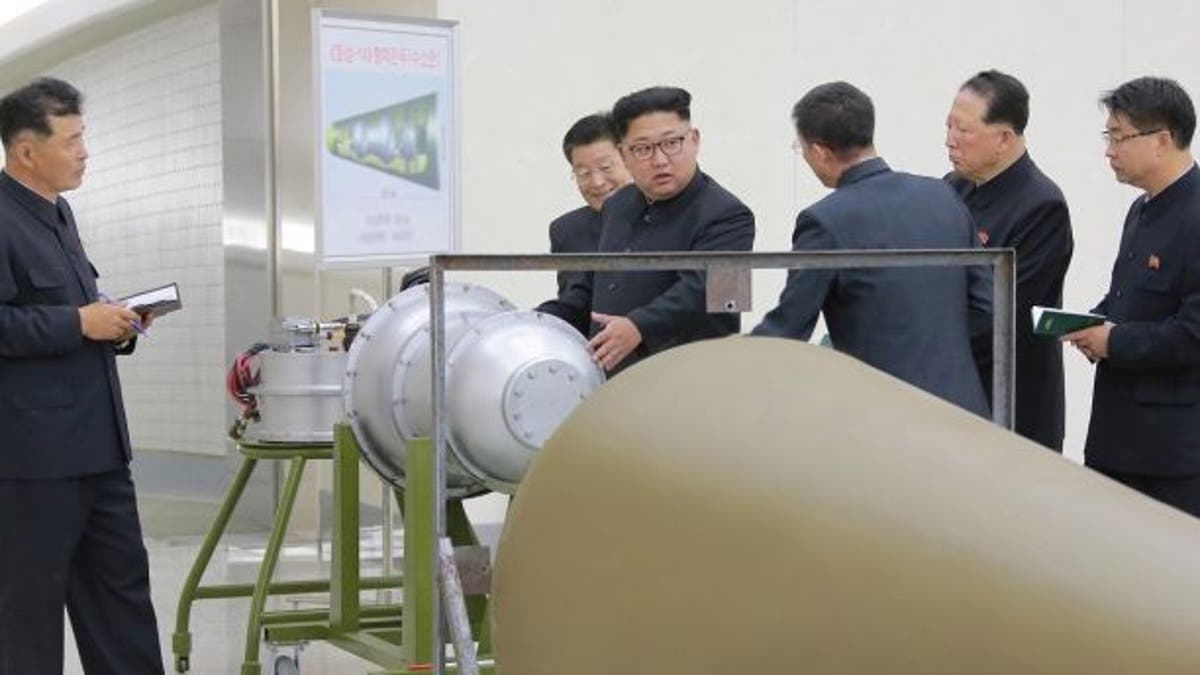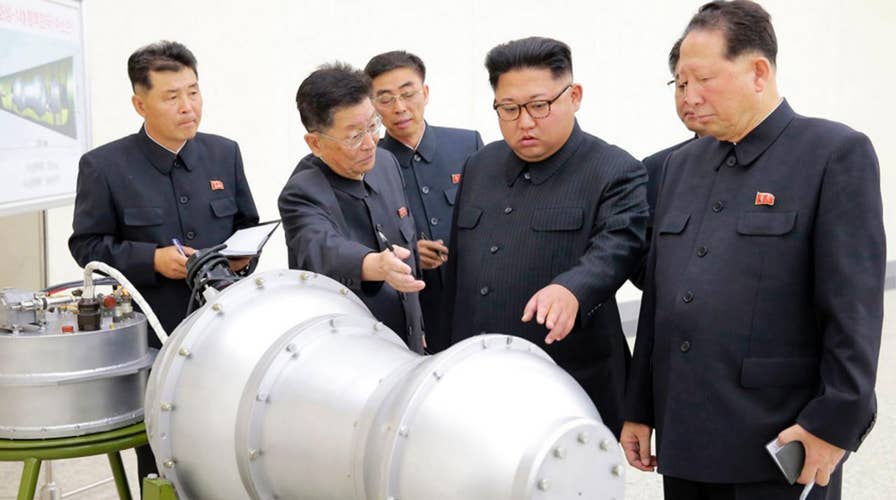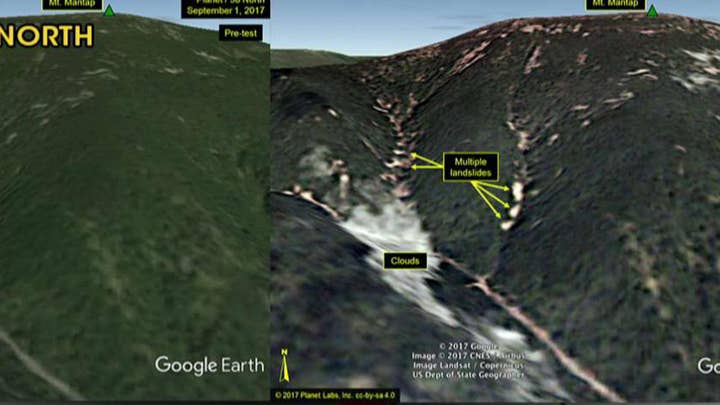Why did North Korea announce closure of nuclear test site?
Did Kim Jong Un make decision as an act of good faith or was his hand forced by a collapse of North Korea's nuclear test mountain? Analysis from Gen. Jack Keane, Fox News senior strategic analyst.
North Korea’s nuclear test site has collapsed after the region sustained damage from five nuclear blast trials, Chinese scientists said Wednesday — leading many to believe it may be the reason why Kim Jong Un suddenly announced the rogue regime would freeze its nuclear and missile tests.
Reports surrounding Punggye-ri test site collapsing have been swirling for months after Kim ordered his scientists to conduct the regime’s sixth nuclear test last September. A research team led by Wen Lianxing, a geologist with the University of Science and Technology of China in Hefei, determined the collapse was from that blast, which tore a hole in Mount Mantap, South China Morning Post reported.

Kim Jong Un inspects what North Korea claims to be a nuclear warhead. The photos were released the same day North Korea conducted its sixth nuclear test in September. (Reuters)
But the damage could pose a bigger risk to the Hermit Kingdom’s neighbors. Residents in South Korea, China and Japan are at risk of radioactive exposure because the toxins could be exposed through the holes and cracks.
“It is necessary to continue monitoring possible leaks of radioactive materials caused by the collapse incident,” Wen said in a statement to the South China Morning Post.
NORTH KOREA ANNOUNCES END TO MISSILE TESTING AS TRUMP CITES 'BIG PROGRESS'
Kim on Friday announced North Korea suspended missile testing and close its nuclear test site.
"From April 21, North Korea will stop nuclear tests and launches of intercontinental ballistic missiles," the Korean Central News Agency said, according to Yonhap News. "The North will shut down a nuclear test site in the country's northern side to prove the vow to suspend nuclear tests."
Researcher Zhao Lianfeng of the Institute of Earth Science at the Chinese Academy of Sciences in Beijing also said the nuke test “site was wrecked beyond repair.”
Japanese broadcaster Asahi TV reported last November that hundreds were killed when one of the underground tunnels under the mountain caved in. North Korea vehemently denied the report.
“[The other scientists'] findings are in agreement to our observations,” Zhao said. “Different teams using different data have come up with similar conclusions…the only difference was in some technical details. This is the best guess that can be made by the world outside.”
Despite closing the site, however, North Korea has options if it wants to resume tests.
“But there are other sites suitable for testing,” Hu Xingdou, who follows the North’s nuclear program, said. “They must be closely monitored.”









































